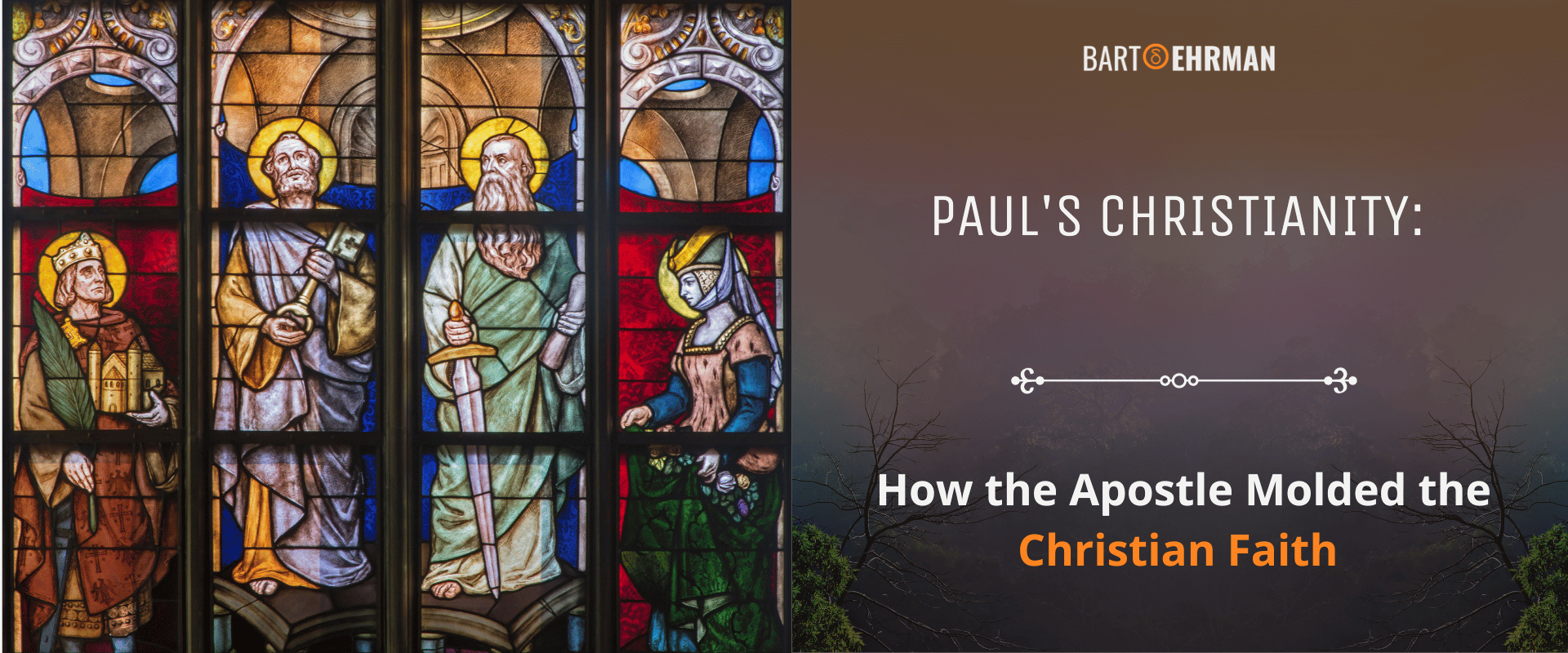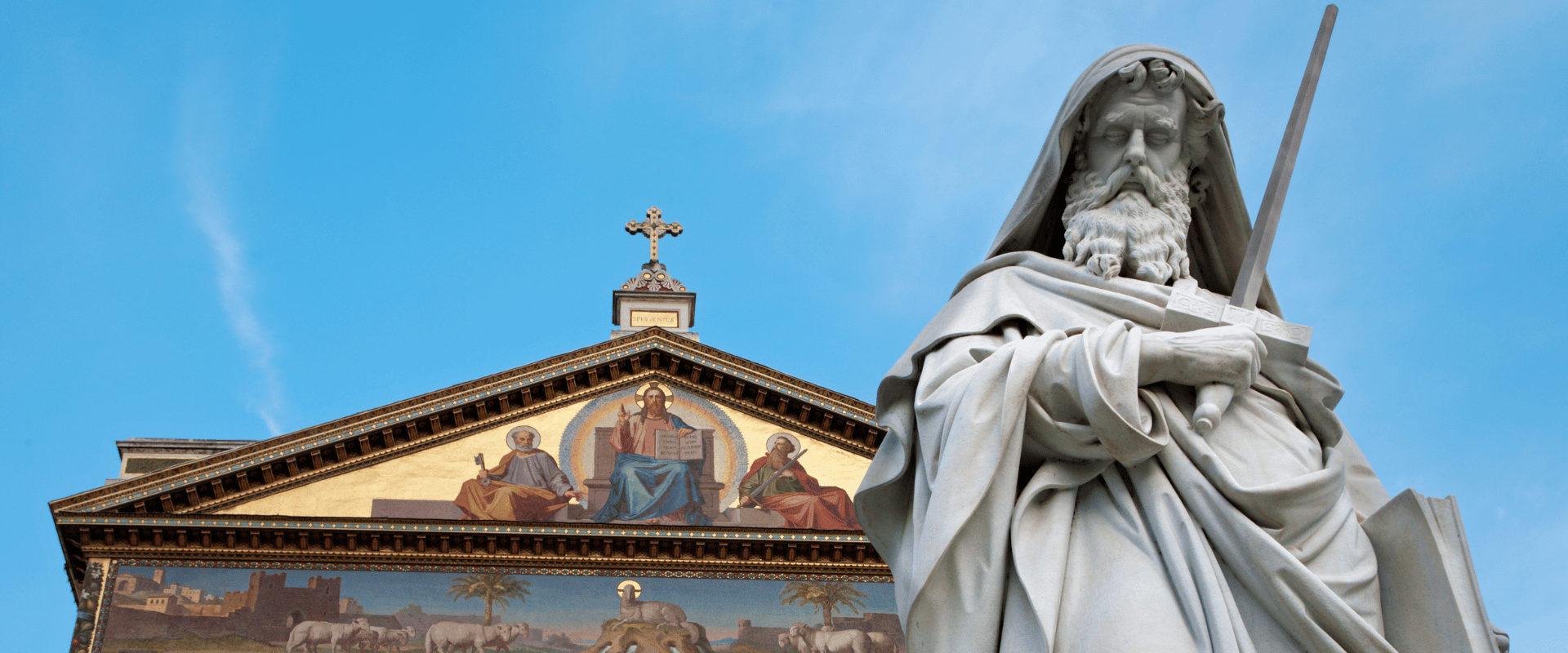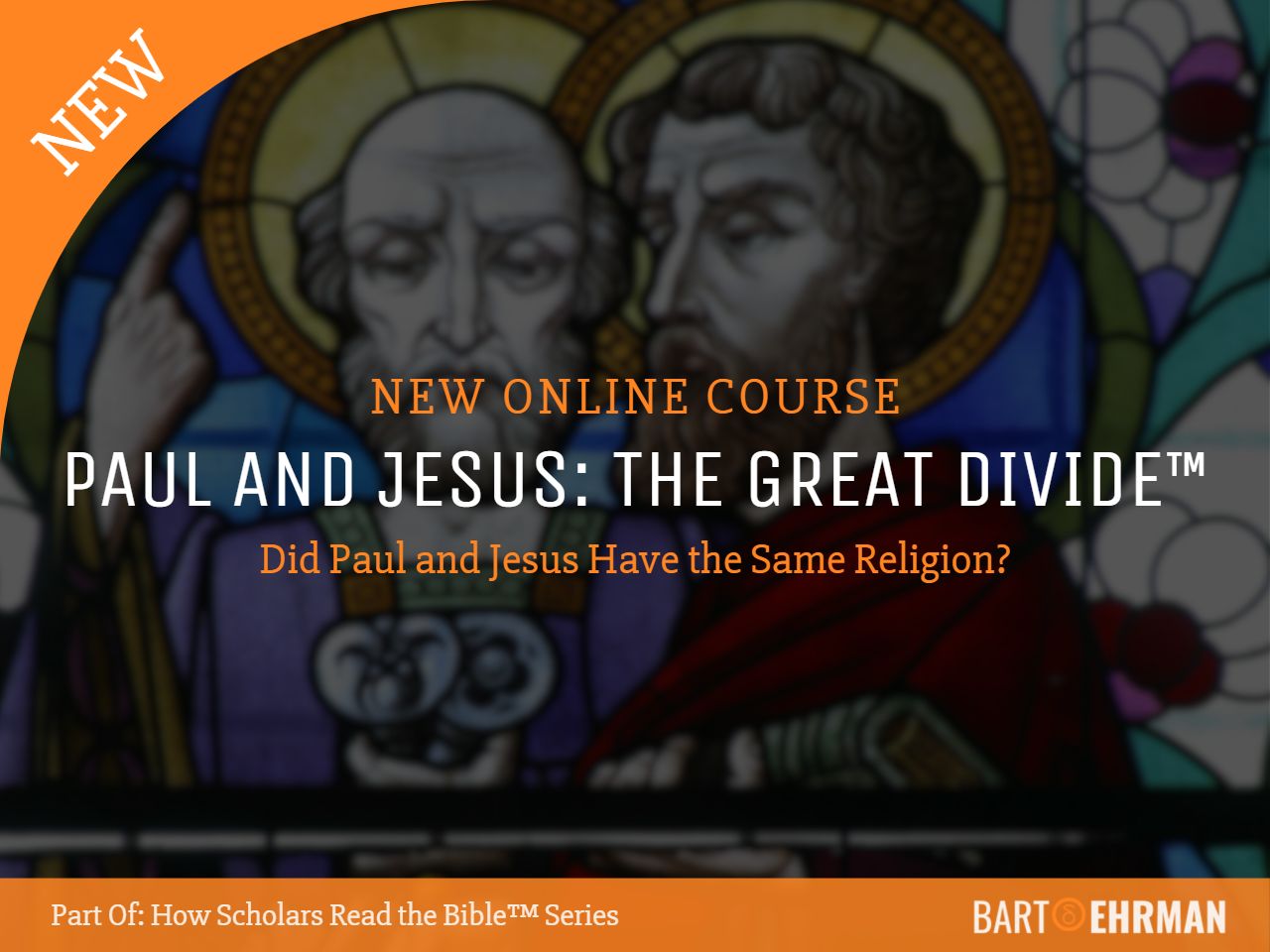Paul's Christianity: How the Apostle Molded the Christian Faith

Written by Joshua Schachterle, Ph.D
Author | Professor | Scholar
Author | Professor | BE Contributor
Verified! See our editorial guidelines
Verified! See our guidelines
Date written: November 17th, 2023
Disclaimer: The views and opinions expressed in this article belong to the author and do not necessarily match my own. - Dr. Bart D. Ehrman
Was Paul’s Christianity the same as what Jesus lived and taught? Many have discussed this question, since Paul’s influence on the development of Christianity is so enormous. Some have even claimed that Paul was the founder of Christianity.
In this article, I’ll examine the evidence and investigate whether Paul and Jesus preached the same gospel.

First Things First: What Are the Sources for Paul’s Theology and Jesus’ Teachings?
When it comes to Jesus’ life and teachings, our oldest sources are the Synoptic Gospels. Most scholars agree that these three Gospels – Matthew, Mark, and Luke – report more authentic sayings of Jesus than the Gospel of John because Matthew and Luke used Mark, our earliest written Gospel, as a source.
As for Paul, it turns out that not every New Testament book claiming to be written by Paul was authentic.
Scholars therefore break Pauline letters in the New Testament into three categories. There are the Pastoral epistles (1-2 Timothy and Titus), the Deutero-Pauline epistles (Ephesians, Colossians, and 2 Thessalonians), and the undisputed Pauline letters (Romans, 1-2 Corinthians, Galatians, Philippians, 1 Thessalonians, and Philemon).
In short, the Pastoral epistles, though written in Paul’s name, were not written by him. The Deutero-Pauline epistles could have been written by Paul, but most scholars think they weren’t.
In order to really look at Paul’s theology in this article, I’ll stick to the undisputed letters, those which the vast majority of scholars agree were written by Paul.
Do Paul and Jesus Contradict Each Other?
It’s hard to deny that Paul and Jesus have some very different answers to the same religious questions. Bart Ehrman uses an interesting example to illustrate this at the most basic level. If you know the Gospel of Matthew, you might remember the story of the rich young ruler from Matthew 19:16-22:
16 Then someone came to him and said, “Teacher, what good deed must I do to have eternal life?” 17 And he said to him, “Why do you ask me about what is good? There is only one who is good. If you wish to enter into life, keep the commandments.” 18 He said to him, “Which ones?” And Jesus said, “You shall not murder; You shall not commit adultery; You shall not steal; You shall not bear false witness; 19 Honor your father and mother; also, You shall love your neighbor as yourself.” 20 The young man said to him, “I have kept all these; what do I still lack?” 21 Jesus said to him, “If you wish to be perfect, go, sell your possessions, and give the money to the poor, and you will have treasure in heaven; then come, follow me.”
For Jesus, then, the way to eternal life is following the Jewish Law or Torah, and then, to really ensure your salvation, sell all you have and give to the poor. While these are not easy requirements by any means, they are straightforward and simple.
Since both Jesus and Paul were devout 1st-century Jews, they surely agreed on these requirements, right? What does Paul say about this in his letters?
In Galatians 2:16 and 21, Paul has this to say:
We know that a person is justified not by the works of the law but through faith in Jesus Christ. And we have come to believe in Christ Jesus, so that we might be justified by faith in Christ, and not by doing the works of the law, because no one will be justified by the works of the law…. 21 I do not nullify the grace of God; for if justification comes through the law, then Christ died for nothing.
If that same rich young ruler had asked Paul how to obtain eternal life, would Paul say the same thing Jesus said? Clearly not.
While Paul was a devout Jew (see Matthew Thiessen’s excellent book for more on this), he clearly thought that his gentile followers could not gain eternal life through the Jewish Law.
At the most basic level, Jesus and Paul seem to have disagreed with each other. Let’s look at some other similarities and differences between them.
Paul’s Christianity and Jesus’ Teachings: Similarities
In some fundamental ways, Paul and Jesus were alike. For example, both were deeply devout 1st-century Jews. More specifically, both seem to have been apocalyptic Jews. In other words, they thought that the world was controlled by evil powers and that God would come very soon to punish those powers and restore the world. Both also seem to have believed that love of others was basic to their religions.
That is basically the extent of their similarities, however.
Paul and Jesus: Differences
In terms of emphasis, Jesus focused on the coming kingdom of God (or the kingdom of heaven in Matthew), which is mentioned 121 times in the Synoptic Gospels. This kingdom would be the imminent restoration of the world after God came to reward the good and punish the wicked. It was an earthly, political kingdom in which God’s chosen one, the Messiah, would rule as king.
By contrast, Paul only mentions the kingdom of God 8 times in the undisputed letters. It seems that in Pauline Christianity, the kingdom is a heavenly realm which those who believe in the salvific death and resurrection of Jesus will inherit after death.
This is why he says in 1 Corinthians 15:50 that “flesh and blood cannot inherit the kingdom of God, nor does the perishable inherit the imperishable.” Those who inherit the heavenly kingdom will not be mere humans but will live in the heavenly realm eternally.
What did Jesus say about faith? He taught that true faith was trusting in God, not only to take care of your basic needs but also to bring God’s restorative kingdom to earth (“Thy kingdom come,” he says in the Lord’s Prayer).
For Paul’s theology, however, faith meant believing and trusting that the death and resurrection of Jesus would save you from the wrath of God’s judgment.
Speaking of the judgment, Jesus, as noted above, explained that to escape God’s wrath, one must keep the Torah (as interpreted by Jesus himself). Paul may have believed that the Torah was important for Jews, but he definitely believed that for gentiles, trust in Jesus’ death and resurrection were the only thing necessary for salvation.
What did Jesus think about his own role? he says that his mission is to announce the imminent kingdom of God and to properly interpret the Torah so that people can follow it correctly.
Paul almost never mentions the earthly Jesus (whom he never met) and only rarely mentions his teachings. In 1 Corinthians 11:22-24, he says what Jesus supposedly said at the Last Supper. He gives two other teachings of Jesus, one on divorce which is slightly different from that in the Gospels, and another on whether preachers of the gospel should make a living from their preaching. That’s it.
For Paul, Jesus’ earthly ministry seems to have little or no importance. Instead, the resurrected Jesus has cosmic significance in that his death and resurrection offer salvation to those who believe in them.
It’s difficult not to come to the conclusion that the religion of Jesus is very different from Paul’s religion about Jesus.

Conclusion: Paul’s Christianity
What did Jesus Preach? While Paul and Jesus shared a Jewish heritage and an apocalyptic worldview, their versions of salvation were very different. Jesus taught that one must keep the Torah correctly and give one’s possessions to the poor in order to be saved from judgment.
What did Paul preach? Paul believed that Jesus, the Messiah, was killed and then resurrected and that those who believed or trusted in the power of these events to save them would be saved and given eternal life. Jesus’ earthly ministry apparently meant very little to Paul.
Did Paul and Jesus preach the same gospel? By now, it should be evident that Paul and Jesus preached very different gospels. However, Paul’s Christianity, which he spread personally and then through his letters after his death, would eventually come to dominate.

